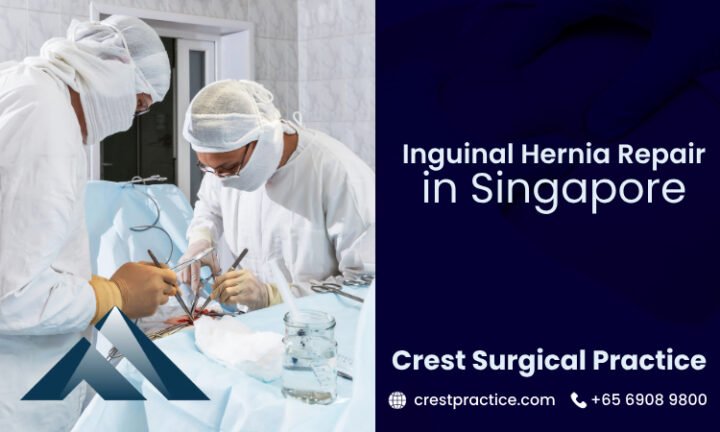Hernia surgery is a standard medical procedure aimed at repairing a weakness or hole in the abdominal wall that allows organs or tissues to push through, creating a visible bulge. If you’re considering inguinal hernia repair in Singapore, understanding the associated costs and recovery process is essential. At Crest Surgical Practice, experienced surgeons provide comprehensive care, ensuring patients achieve the best outcomes.
Hernia Surgery Costs in Singapore
The cost of hernia surgery in Singapore varies depending on factors such as the type of hernia, the complexity of the procedure, and whether it is performed in a public or private hospital.
1. Type of Surgery
Hernia repair can be performed using either open surgery or laparoscopic (keyhole) surgery. While laparoscopic surgery is minimally invasive, it typically costs more due to the advanced equipment and techniques required.
2. Hospital Fees
Public hospitals in Singapore generally offer more cost-effective options compared to private institutions. Singaporean citizens and permanent residents may qualify for government subsidies when seeking treatment at public hospitals, significantly reducing the financial burden.
Types of Hernia Surgery
Hernia surgery is classified into two primary techniques:
Open Hernia Repair
This method involves a larger incision at the hernia site, allowing the surgeon to repair the weakened area directly. While effective, it often requires a longer recovery period and leaves a more prominent scar.
Laparoscopic Hernia Repair
This minimally invasive technique involves small incisions through which a camera and specialized tools are inserted. Patients benefit from a shorter recovery time, minimal scarring, and less post-operative discomfort, though this option is typically more expensive.
Recovery After Hernia Surgery
Recovery times and experiences differ based on the surgical method used and individual patient factors.
1. Hospital Stay
Most patients can expect to be discharged within one or two days, particularly after laparoscopic surgery.
2. Pain Management
Mild to moderate pain is common during the initial recovery period. Your doctor will prescribe pain medication to alleviate discomfort.
3. Physical Activity
Strenuous activities and heavy lifting should be avoided for four to six weeks post-surgery. However, walking and light activities can be resumed within a few days to promote circulation and reduce the risk of complications.
4. Follow-Up Care
Regular follow-up appointments with your surgeon are crucial to monitor healing, address any concerns, and ensure there are no complications, such as infections or recurrence of the hernia.
Factors Influencing Recovery
Several factors can affect recovery time, including the surgical method used, the size of the hernia, the patient’s age, and overall health. Laparoscopic surgery typically leads to a faster recovery, while open surgery may necessitate a longer healing period.
Final Thoughts
Undergoing hernia surgery is a significant step toward improving your health and quality of life. By choosing Crest Surgical Practice, patients can expect high-quality care tailored to their needs. Understanding the costs and recovery process empowers you to make informed decisions and ensures a smooth and successful outcome.




